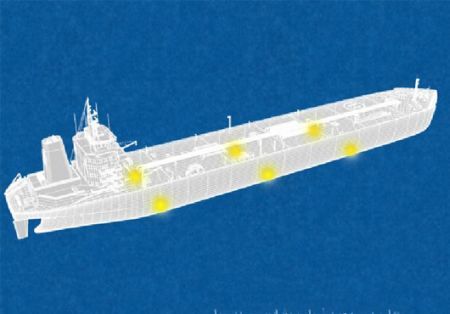
Some two weeks since Gamma Light & Heavy Industries Ltd released information about their TGPS propulsion system CEO Douglas G. Bruce says the response from the worldwide maritime industry has been overwhelming.
“It’s apparent that the industry is very motivated when it comes to addressing looming environmental protection legislation and its potential impact on operating efficiencies”, said Bruce.
When questioned about the response, Bruce advised that all current negotiations are bound by strict confidentiality provisions but he did suggest that he has received direct contact from the Who’s Who of the maritime industry.
Bruce did suggest that he was a little surprised that most enquiries from ship owners were about fitting TGPS to new builds.
“I’m not sure that ship owners have yet fully grasped the viability of retrofitting TGPS to their existing fleet. The system is relatively inexpensive to install and can be done in conjunction with their scheduled haul out. Costs for retrofits are proportional to original HP specifications and in almost every case full payback can be achieved through fuel savings in just 18 months or less.”
Environmental legislation and its potential impact on operations, especially in regard to propulsion and power generation systems, was a lead topic at the recent Annual Marine Propulsion Conference in London. It was reported that in his welcoming address Oskar Levander – VP Marine Innovation, Engineering and Technology at Rolls-Royce – said that the major challenge to the industry is the need to address the efficiency of ships: driving down fuel costs while meeting new environmental regulations.
While David Chaters – Consultancy Services Manager at Meridian Marine Management – is quoted as suggesting that it does not make sense for ship owners to incur costs by investing in technology that benefits charterers by lowering fuel costs while those ship owners have little gain from increases in revenue.
GLHI’s Douglas Bruce was quick to point out that TGPS addresses this imbalance by the very way it is sold and used. Bruce said, “A vessel fitted with TGPS will consume 75% less fuel, which obviously benefits the charterer, so the ship owner could reasonably charge a premium for their vessel (to recoup the costs for retrofitting TGPS) and the charterer would still save around 50% of his related fuel costs. That’s a win-win situation for all concerned,” said Bruce.
We use cookies to improve your experience. By continuing to use our site, you accept our Cookies, Privacy Policy,Terms and Conditions. Close X